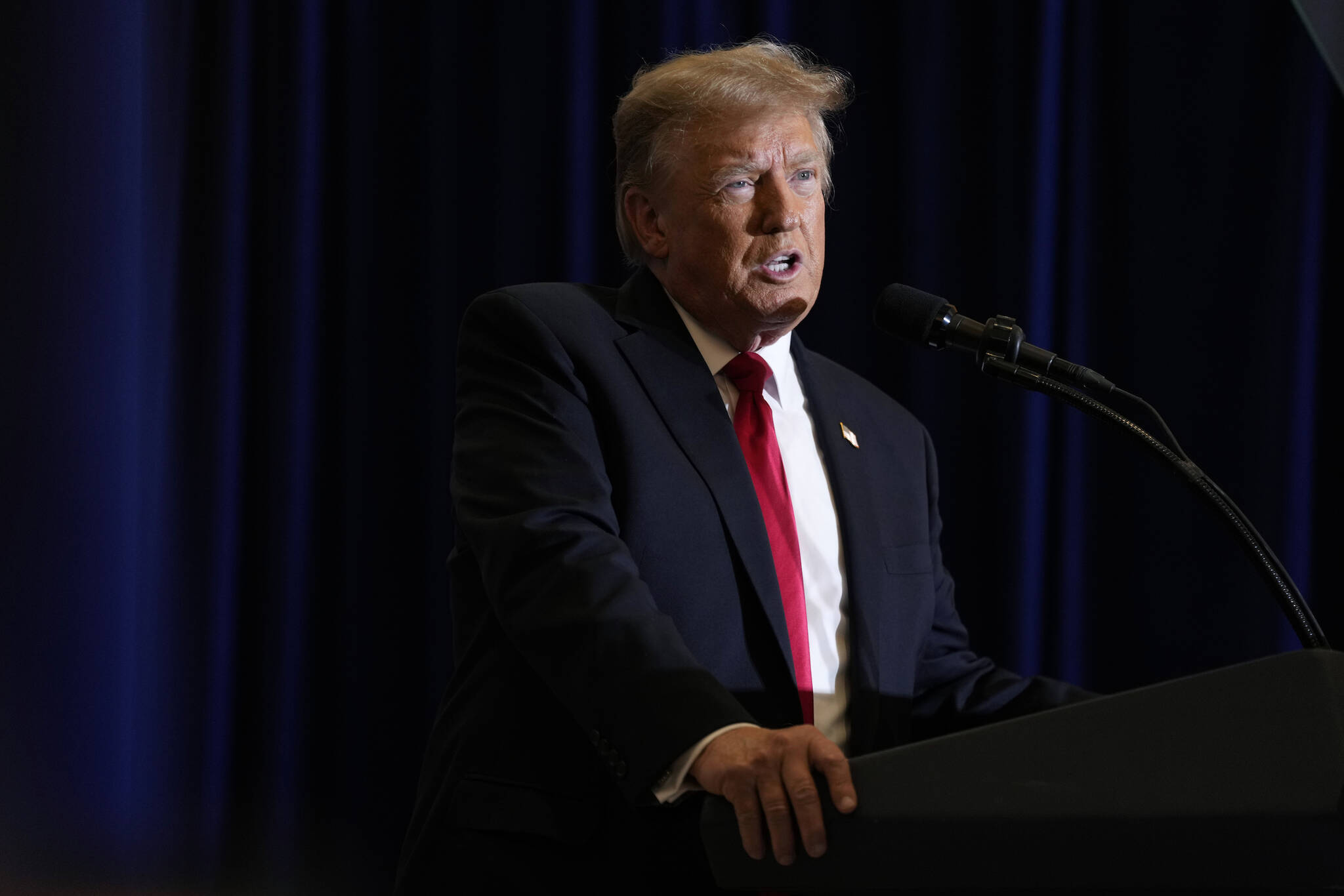Four constitutional questions related to Donald Trump’s attempt to overturn the 2020 election are likely to be decided by the U.S. Supreme Court. One of them has the potential to show that Sen. Dan Sullivan and two dozen of his Republican colleagues conveniently misinterpreted the Constitution to justify acquitting Trump of the impeachment charge that he incited the Jan. 6 insurrection.
Let’s start with the lawsuits filed in about 30 states, including Alaska, that argue because of his role in the insurrection, the Fourteenth Amendment prohibits Trump from serving as president. On Wednesday, the Michigan Supreme Court rejected that claim. Last week the Colorado Supreme Court reached the opposite conclusion. However, they also decided Trump could remain on the state ballot pending the outcome of appeals to the U.S. Supreme Court.
I suspect the nation’s highest court will first consider the constitutional challenges to the election-related criminal indictments against Trump. He’s argued the charges should be dismissed because presidents have “absolute immunity from criminal prosecution for actions performed within the ‘outer perimeter’ of his official responsibility.” And since he was “previously tried and acquitted” by the Senate, he claims the charges violate the Constitution’s impeachment and double jeopardy clauses.
U.S. District Judge Tanya Chutkan rejected those arguments. Immediately after Trump appealed, Special Counsel Jack Smith filed a motion asking the U.S. Supreme Court to hear the case on an expedited schedule without going through the appellate court process. When the justices declined Smith’s request, Trump celebrated as if they ruled in his favor.
“Of course I am entitled to Presidential Immunity,” he crowed, adding he had the “right and duty to investigate, and speak on, the rigged and stolen 2020 Presidential Election.”
The immunity question isn’t settled though. And the Court of Appeals for the D.C. Circuit had already agreed to expedite its review.
Furthermore, in a related civil lawsuit, that court unanimously rejected Trump’s claim that he was acting within the outer perimeter of his official duties while challenging the election results. As supporting evidence, they cited the case in which the State of Texas asked the Supreme Court to overturn the election results in Georgia, Pennsylvania, Michigan, and Wisconsin. In Trump’s own words, he sought “to intervene in his personal capacity as a candidate for re-election” and “to protect his unique and substantial personal interests as a candidate.”
So, expect the Appeals Court and the Supreme Court to uphold the District Court rulings.
But let’s consider Trump’s interpretation of the Constitution’s impeachment and double jeopardy clauses from another perspective. Since they’re included in his appeal, the Supreme Court should take the opportunity to refute the reason why most Senate Republicans voted to acquit him.
This is how Sullivan explained his vote:
“The constitutional purpose of impeachment is to remove an official from office — and, in this case, that purpose had already been achieved” by Trump losing the election. He then argued “pursuing impeachment in this case creates a troubling, unconstitutional precedent in which former officials — private citizens — can face impeachment and conviction.” And he concluded “the Senate does not have jurisdiction to try a former president who is now a private citizen.”
That flawed analysis served more like a dismissal of the charges due to a technicality than an acquittal based on an honest assessment of the evidence. Allowing such a reading of the Constitution to stand would be the more troubling precedent. In their last weeks in office, future presidents could knowingly commit impeachable offenses with full confidence that Congress is powerless to hold them accountable.
That certainly isn’t what the framers intended.
Sullivan was also wrong to argue that “the American people are well equipped to decide whether or not the former President should be disqualified from holding future office.” He was fully aware that Article 1, Section 3, clearly assigns that grave responsibility to the Senate.
The statement made by Sen. Mitt Romney (R-Utah) after the insurrection applies here. Sullivan would have shown greater respect for American voters “by telling them the truth. That’s the burden, and the duty, of leadership.”
But because Sullivan and enough of his colleagues chose to abdicate their responsibilities, it’s necessary for the U.S. Supreme Court to provide them and all future senators with an elementary lesson from Constitution 101.
• Rich Moniak is a Juneau resident and retired civil engineer with more than 25 years of experience working in the public sector. Columns, My Turns and Letters to the Editor represent the view of the author, not the view of the Juneau Empire. Have something to say? Here’s how to submit a My Turn or letter.

